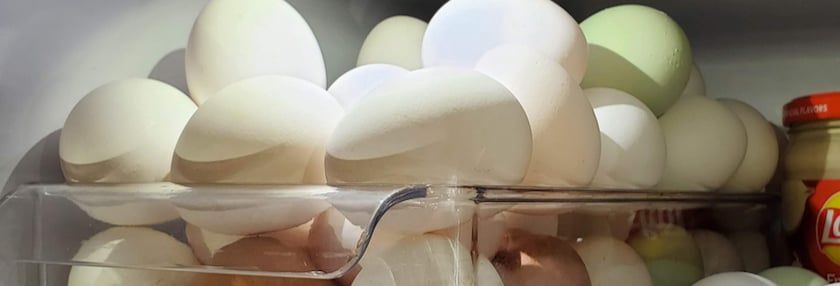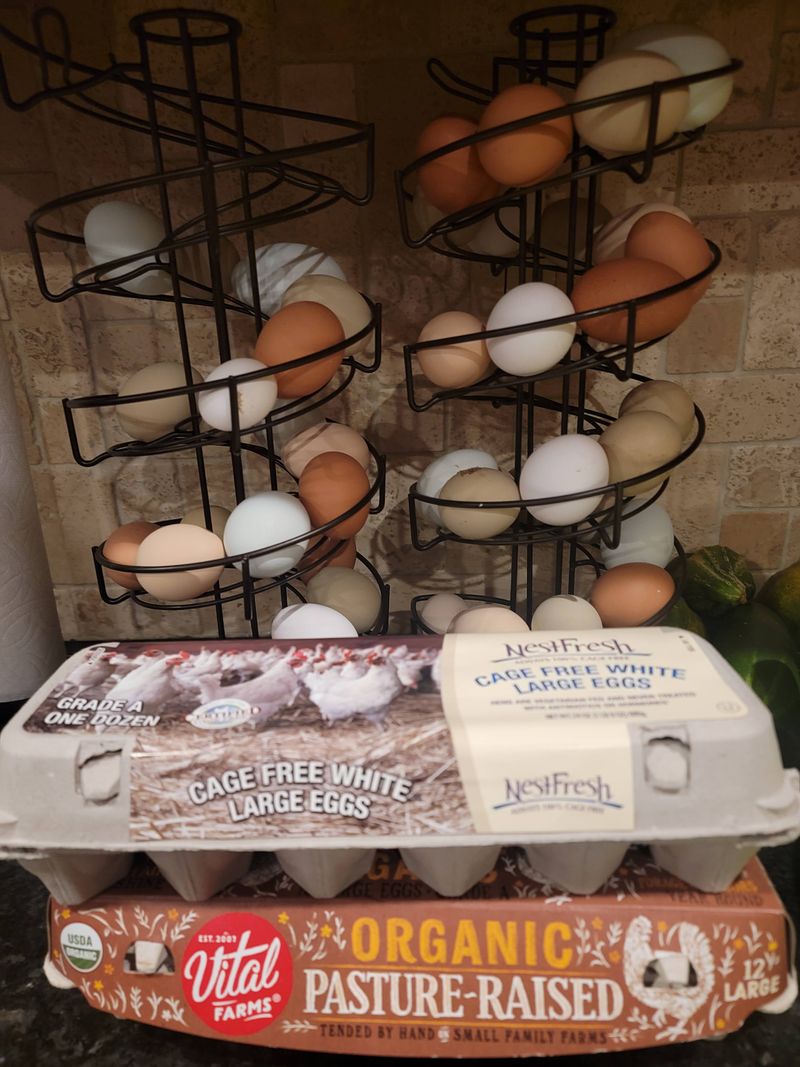Keeping It Fresh


Farm-to-kitchen tips for your eggs
Ah, farm fresh eggs—is there anything better than going out to the coop and collecting newly laid eggs from your flock? You feed and care for your hens so you know exactly what goes into these eggs, unlike store-bought eggs can be mysterious to the consumer.
Something about preparing and eating these farm-to-kitchen eggs is just so satisfying!
However, getting a handful of eggs daily can add up quickly and your family’s consumption may not be able to keep up with the sheer number your hens produce. How can you store these eggs so they stay fresh for as long as possible? Here are some tips.
Don’t wash them
In a society where the first thing we do is scrub our food and produce until it shines, it may be counter-intuitive to not wash your eggs the moment you get them to the kitchen.
All fresh eggs have a protective layer covering them called the “bloom.”
The bloom is a thin layer of film coating the outside of the egg. This film seals off the pores on an eggshell and prevents bacteria from entering; this keeps the yummy part of the egg safe and edible. When you do wash the egg prior to cracking it, you may even be able to feel the bloom’s slightly slimy layer slipping off. Keeping this layer on the egg until just before cracking it will help prevent the egg from going bad.
If coop muck and yuck coating your egg is too much to endure, then feel free to wash them but be sure to store the eggs immediately in the fridge and eat them within a week… much like store-bought eggs. An easy way to prevent muck from sticking to your eggs is ensuring your hens have a constant supply of clean, fresh straw in which to lay.
Storage
Because of this bloom, farm fresh eggs can actually be stored on the counter at room temperature for up to one month. Obviously, the quicker you eat them, the fresher they will taste; but you can prolong the freshness by popping the eggs in cardboard egg cartons or an open basket and stack them in a cool, dark area like a pantry. Keep them out of the sun and allow them to “breathe.”

Plastic containers sitting on a bright countertop are not conducive to proper egg keeping.
You can also keep eggs in the fridge if you have room; they do tend to last longer when kept chilled. If you keep the eggs in a fridge, storing them in a sealed container is best and will keep them fresh for up to 6 months.
Freezing the eggs
If you have some overly productive layers and simply are tired of eating omelets, quiches, and deviled eggs daily, freezing the eggs may be your best option for long-term storage.
Unfortunately, freezing eggs is not as simple as popping the whole egg in your icebox, as there is a bit of prep work that goes into it.
Crack the eggs into a bowl and very gently stir the yolk and whites together with a fork. Go slow so you don’t introduce too much air. Airy frozen eggs turn rubbery when you cook them. Once the yolk and white are thoroughly mixed, pour them into plastic ice cube trays and pop them into your freezer. One cube equals approximately one egg.
To use frozen eggs, defrost them overnight in the fridge and be sure to use within one day of defrosting. Frozen eggs can last up to one year.
Do you have a bad egg?
Even the best laid plans (or eggs) can go bad. How can you check that your breakfast isn’t going to turn on you? It’s pretty simple. Take a bowl of water and gently plop in your whole egg before eating. If it floats, it’s bad. If it sinks, it’s edible.
Bad eggs float because gases are being released.
If you don’t have a bowl of water handy, just hold the egg up to your ear and give it a little shake. If you can hear the egg slopping around inside the shell, toss it.
And now you know
Whether you eat the eggs as soon as you pick them up, freeze them, store them in the fridge or proudly display them on your counter, fresh eggs are simply the best! Keeping them fresh as long as possible is easy if you know how to do it.
However, if you are simply drowning in eggs, I’m sure your neighbors would be more than happy to take a carton or two off your hands!
Tags:Chicken Chatter

Acreage Life is part of the Catalyst Communications Network publication family.
















